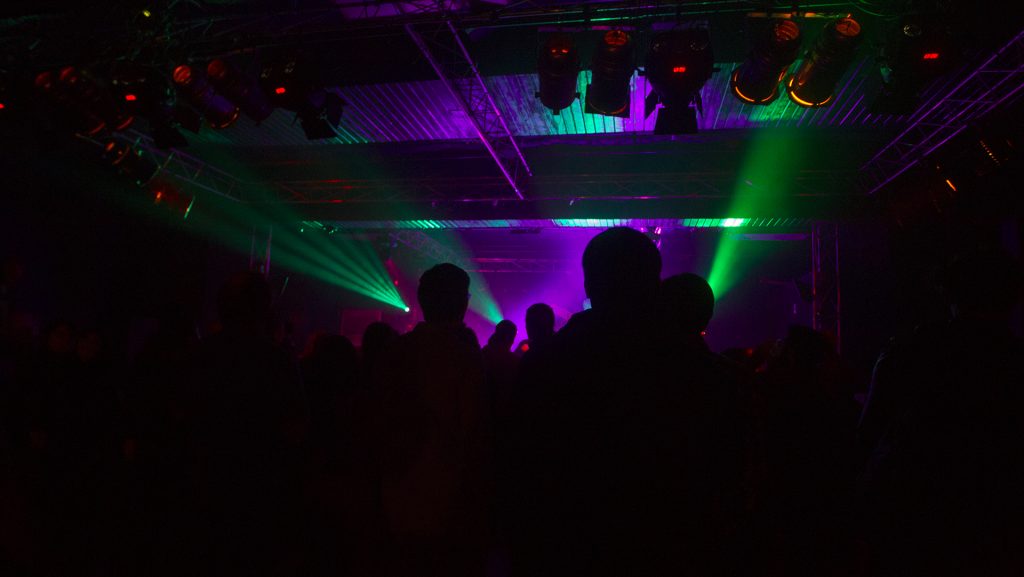Middle Western’s name describes the band’s native land, Iowa, but it does not pay tribute to the Southern rock, bred in the 1970s, that the band members adopt in their first album [TA1] , When Your Demons Are Underground and You’ve Got to Dig Them Up.
Iowa music legends William Elliott Whitmore and David Zollo lead the band. The two have built solo careers on the land where they were born but welcome this five-piece as a tribute to those they have met along the way.
“How many shows have we played here collectively?” Whitmore asked his band. “Surely it’s in the thousands.”
The band went to Gabe’s, 330 E. Washington St., to dèbut its new album. The bar was shy during fellow Iowan Paul Cary’s set, but the familiar tones of Whitmore’s voice brought the crowd to the front of the dance floor. They jumped right into the performance following a handshake between Whitmore and Zollo as if they had just met.
RELATED: Local and touring acts visit Iowa City’s downtown following Mission Creek
Zollo then kicked off his shoes, either seeking comfort or expressing his comfort level with the familiar Gabe’s stage. Shortly after, he and Whitmore kicked the band off to its fiery first tune.
The band’s music gave the impression that they had played together for years. While this may be true in part for a few of the group members, the band’s first body of work is an overwhelming misrepresentation of maturity in its short existence.
The beauty behind Middle Western’s work is the familiarity of Whitmore and Zollo’s voices while they bring in a dueling guitar anthem to nearly every track. The six-string duet is shared between Stephen “The Kid” Howard and Stevie Doyle — Steve squared.
Howard’s and Doyle’s solos were reminiscent of the Allman Brothers’ early works, echoing the keyboard and vocals with a conversation of their own. The space on-stage for the duel is rare in today’s rock-and-roll scene.
“If I were to try to describe Middle Western or how it fits into Whitmore’s or Zollo’s career, I would say it is a direct reflection on a portion of each their personal record collections, specifically the early and mid-70s portion,” said Luke Tweedy, who produced the band’s record at his Flat Black studios.
This tribute is represented largely in Whitmore’s change in instruments. He traded the six-string guitar and banjo he plays during his solo projects for an electric bass, an indication of respect for his fellow eastern Iowa musicians.
Doyle took a seat on-stage about midway through the set, playing his guitar with it rested on his lap, imitating a pedal steel. The seat was soon-after traded for standing lead lines that carved a path over to Howard, who remained stage left.
This led to the latter part of Middle Western’s set. The group continued to alternate vocals, sharing leads and harmonies. However, Brian Cooper’s drums became increasingly louder and were echoed by a growl in Whitmore’s voice.
The band played some of its party tunes that reside on the B-side of the new album. The party mentality resulted in a dancing Gabe’s audience and an equally excited band on-stage to conclude the band’s first Iowa City performance.



